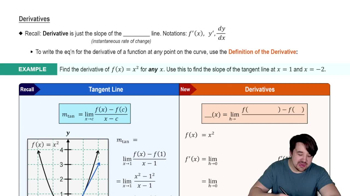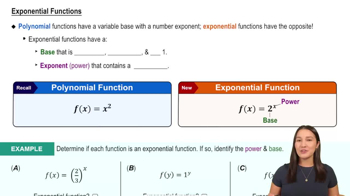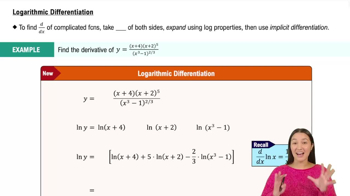75–86. Logarithmic differentiation Use logarithmic differentiation to evaluate f'(x).
f(x) = (x+1)^3/2(x-4)^5/2 / (5x+3)^2/3
 Verified step by step guidance
Verified step by step guidance Verified video answer for a similar problem:
Verified video answer for a similar problem:



 6:30m
6:30mMaster Logarithmic Differentiation with a bite sized video explanation from Patrick
Start learning